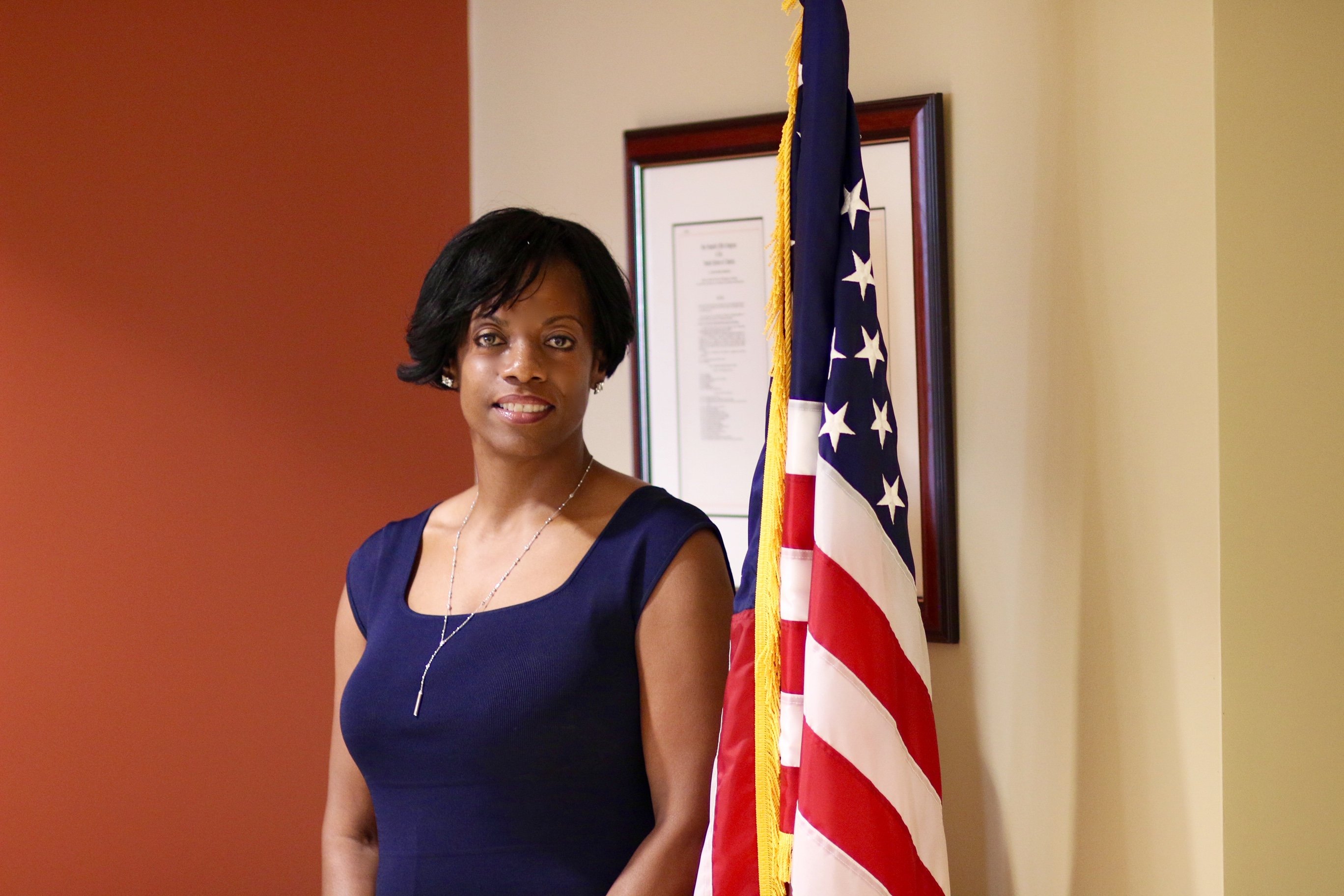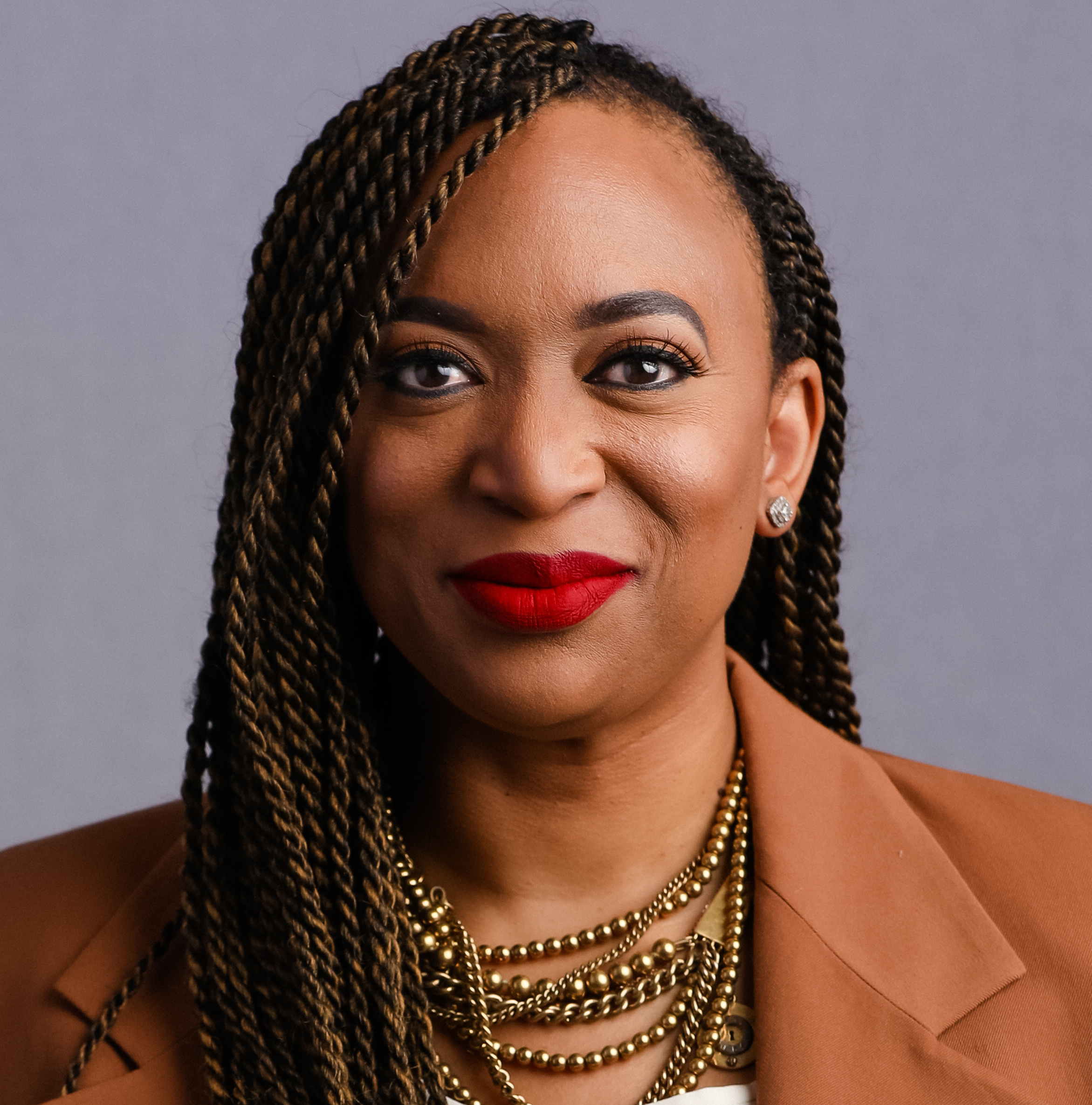 Our industry has committed itself to making our workplaces trusting places to have complex, and sometimes difficult, conversations about diversity and inclusion.
Our industry has committed itself to making our workplaces trusting places to have complex, and sometimes difficult, conversations about diversity and inclusion.
PhRMA’s Courtney Christian, Senior Director of Policy and Research, had the opportunity to connect with Stephanie Dyson, Head of Office, Vice President Public Policy & Government Affairs at Biogen, about Stephanie’s career, being a Black woman in corporate America and the advice she’d give to young professionals today.
Courtney Christian (CC): Tell us about the work that you do, and why you wanted to have this conversation?
Stephanie Dyson (SD): I am uniquely positioned as a Black female executive working in government affairs, an area that is grossly underrepresented by Black people at all levels. Corporate America is finally engaging in real conversations about race, justice, diversity, equality, inclusion, unconscious biases and microaggressions. These will undoubtedly be uncomfortable conversations, but they must occur. Your workplace experience doesn’t define you, but it certainly plays an important role in shaping and impacting who you are. Black Americans deserve to be valued and respected. We deserve to work for organizations that not only believe our work has value, but also that understand that our lives have value as well.
CC: Why is it so important for industries like ours to reflect our country’s diversity?
SD: I am mature in my career. Until very recently, I had not been comfortable having conversations about racism and being Black in America — especially at work. To navigate work successfully, I was taught to wear two faces, especially in a predominately white corporate environment. In some ways you must hang up your authentic self and put on your protective armor for work. Many will never know how it feels to be the only one that looks like you in a conference room, in a meeting or at a networking event or happy hour. Or what it feels like to constantly assimilate yourself in to another group's culture and way of doing things. Or to constantly be challenged and not be able to stand up for yourself or correct someone's assumptions and untruths about you, your culture or your community for fear of losing your job.
Why “two faces”? “Two faces” allow us to be accepted, received and heard. Two faces allow us to actualize higher aspirations and to make others comfortable — and it’s draining. I, and many other Black Americans, routinely endure (with a brave face) racial slights and overt intentional racist acts because we know our success is not just about us but about our commitment to open doors for other Black Americans that will follow. We are taught to endure. We are taught to have faith and to lift others up. We are taught to sacrifice for the greater good. How many other groups feel the pressure of having to represent your race well at all times?
We MUST ensure our industry is diverse to bring a broader, richer perspective to business decisions and strategy and to ensure our industry is representative of the patients we serve. And in order to do that, our industry has to be committed to having diverse voices and viewpoints in decision making roles, top to bottom and side to side within our organizations, so that the procedures, policies and strategies employed by our industry speak to and reflect the priorities of the many communities who depend on the medicines and treatment we innovate and provide to improve health outcomes for them and their families.
CC: Your response reminds me of the famous poem by Paul Lawrence Dunbar, “We Wear the Mask” and of the double consciousness that W.E.B. DuBois discussed. Do you think that the pharmaceutical industry’s commitment to racial justice, made after the murder of George Floyd, changes whether we – me and you as part of the industry – continue to wear that mask as our companies have been actively working towards cementing the racial justice principles our Board committed to?
SD: Watching the video of George Floyd’s murder made me face the reality of fear, lack of power and marginalization of Blacks in America. A white police officer, who knew he was being filmed, his glasses never moving from his forehead, was casual and unfazed as he slowly killed a Black man for eight minutes and forty-six seconds. His knee on a Black man’s neck is symbolic of so much.
Corporate America, and America in general, has not yet determined how to best acknowledge and accept the fact that racism still exists. This topic has been, and to a large extent still is, uncomfortable to address in the workplace, but I’m truly inspired by the recent protests and today’s discussions. They are different from those in the past because they are more ethnically, economically, socially, institutionally and politically diverse. It’s this type of support, conviction, compassion and caring that empowers personal strength and gives me hope that things can change.
CC: I remember as a former Black Hill staffer, feeling frustration that there were so few government affairs professionals who looked like me, someone who could possibly serve as a mentor and someone to perhaps provide a pattern of what I wanted my career to follow. We still consistently hear this from former and current Black Hill staffers. What can we do to address this?
SD: We need to create networking opportunities, interview more Black candidates and address the unconscious bias and perceptions that Black government affairs professionals only lobby Black and minority members of Congress and work to hold individuals, organizations and companies accountable. For example, my company (Biogen) has created a four-pronged Diversity, Equity & Inclusion (DE&I) initiative and has already began taking steps to not just discuss solutions but actually implement measures to address social and racial inequities, including building inclusive talent systems, having individual accountability for DE&I, driving health equity, focusing on hiring and retaining black talent, banking with minority institutions, enforcing mandatory workforce training, and increasing transparency in employment data.
CC: There are likely a lot of young, Black and Brown professionals just starting out, who will read this article and look to you for guidance. What do you want them to know?
SD: When I was a young nurse, I was admitted to a very prestigious course at the critical care unit at an area hospital. I remember walking into the room and seeing only two seats available in the front. As I walked to take a seat the instructor stopped me to ask if I was in the right room. When I said yes, the instructor pressed again asking, “Are you a registered nurse?” It wasn’t until I looked around the room that I realized I was the only Black person there. During my training I came to find out that I had the highest GPA in the class. In fact, many of the other students didn’t meet the minimum GPA criteria. People asked me, “Aren’t you proud? You have the highest GPA out of everyone!” To me, it didn’t feel that way because it felt like to be effective in my role, I had to be exceptionally better than everyone else. Fast forward to 18 months ago when I joined Biogen. I remember going to an industry meeting, one of my first in my current role, and the first thing I heard when I walked into the room was, “Oh great, we just doubled our minority representation.” For me it was no different than walking into that room years ago as a young nurse and the first thing anyone noticed was my race.
I have often wondered: what more do we need to do as Black people to prove our humanity? My realization over the years is that I control my destiny. I’ve learned to speak up for myself and not allow the actions and ignorance of others take away my value or ultimate happiness.



 Our industry has committed itself to making our workplaces trusting places to have complex, and sometimes difficult, conversations about diversity and inclusion.
Our industry has committed itself to making our workplaces trusting places to have complex, and sometimes difficult, conversations about diversity and inclusion.

